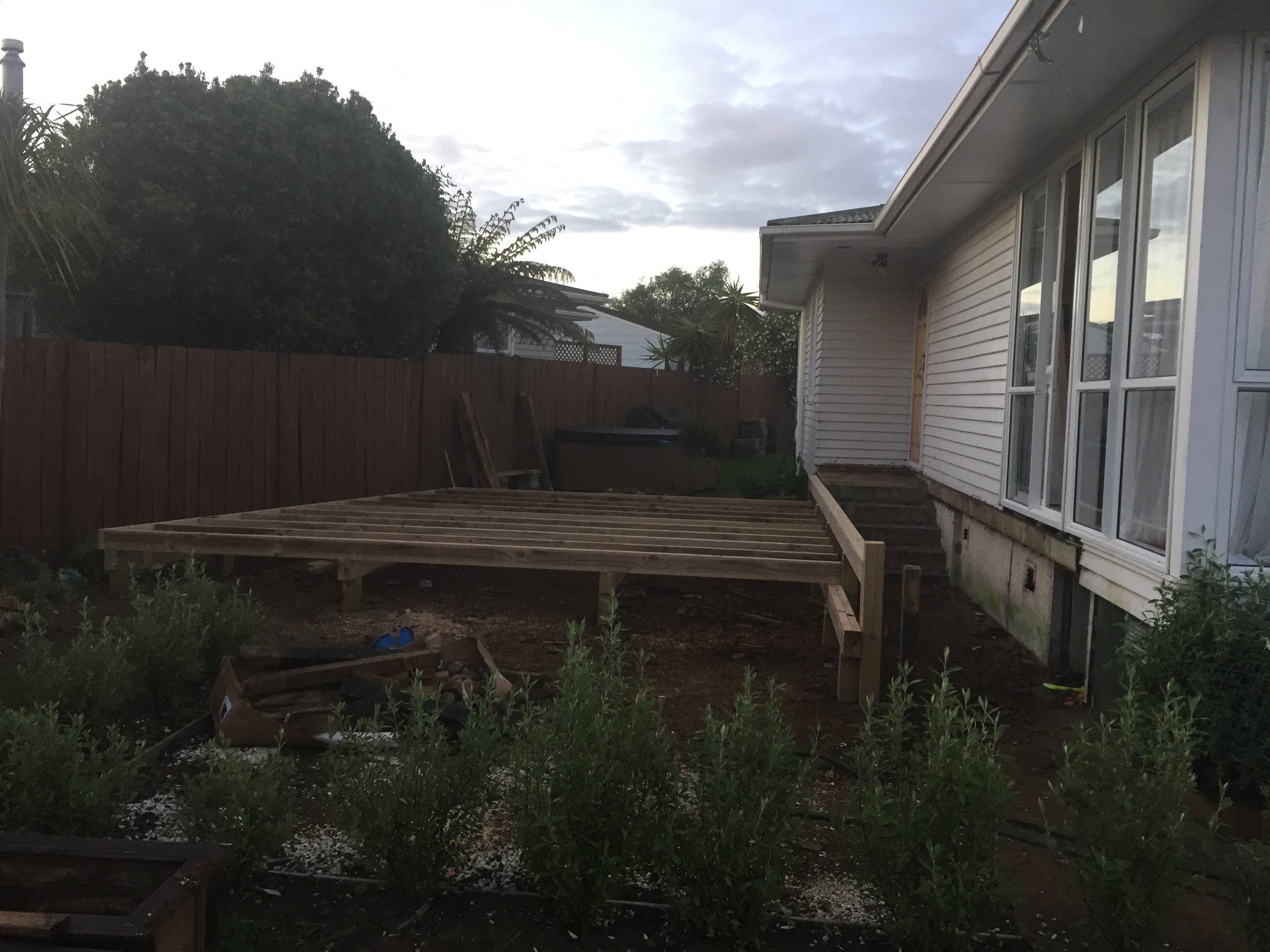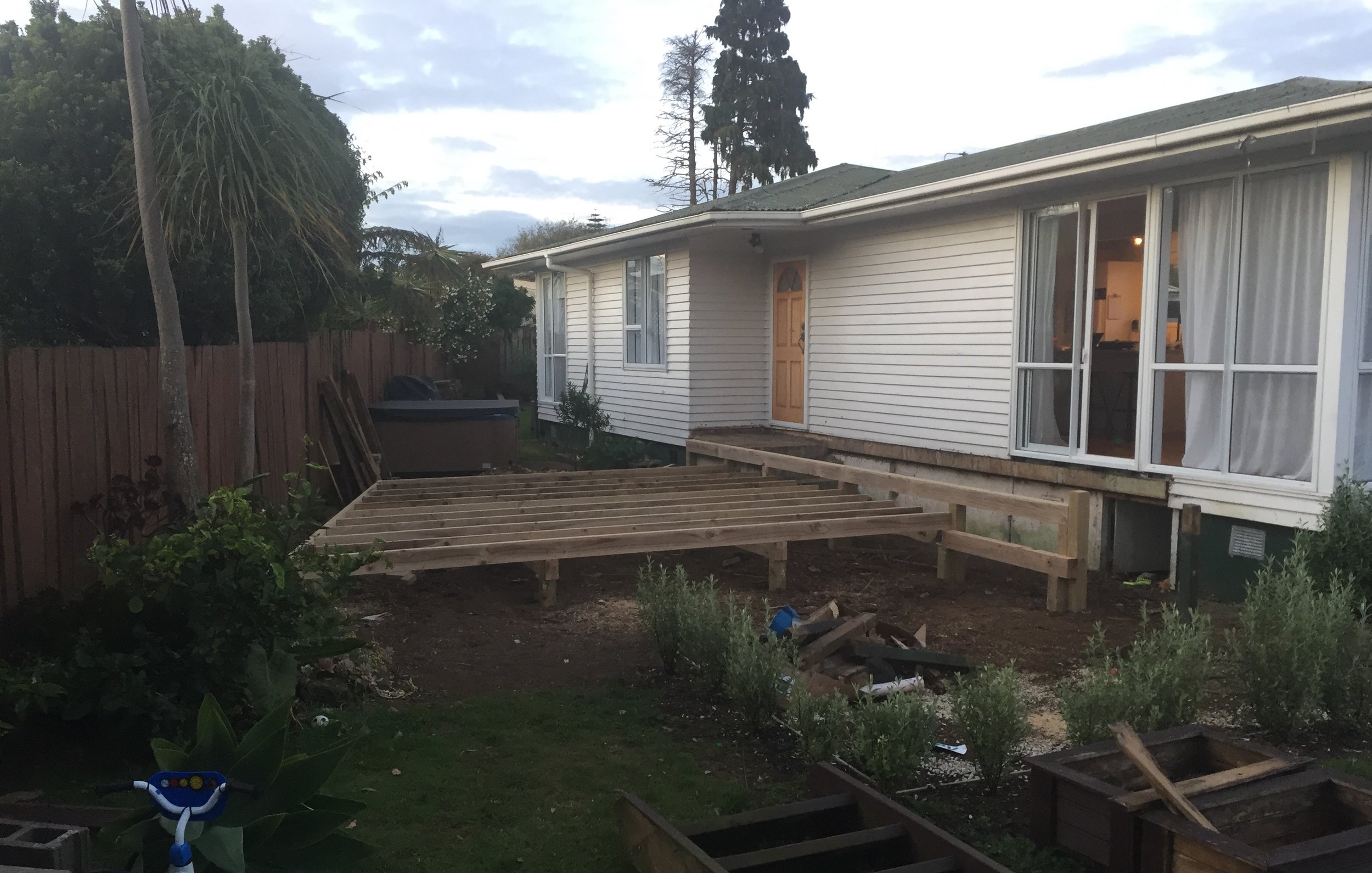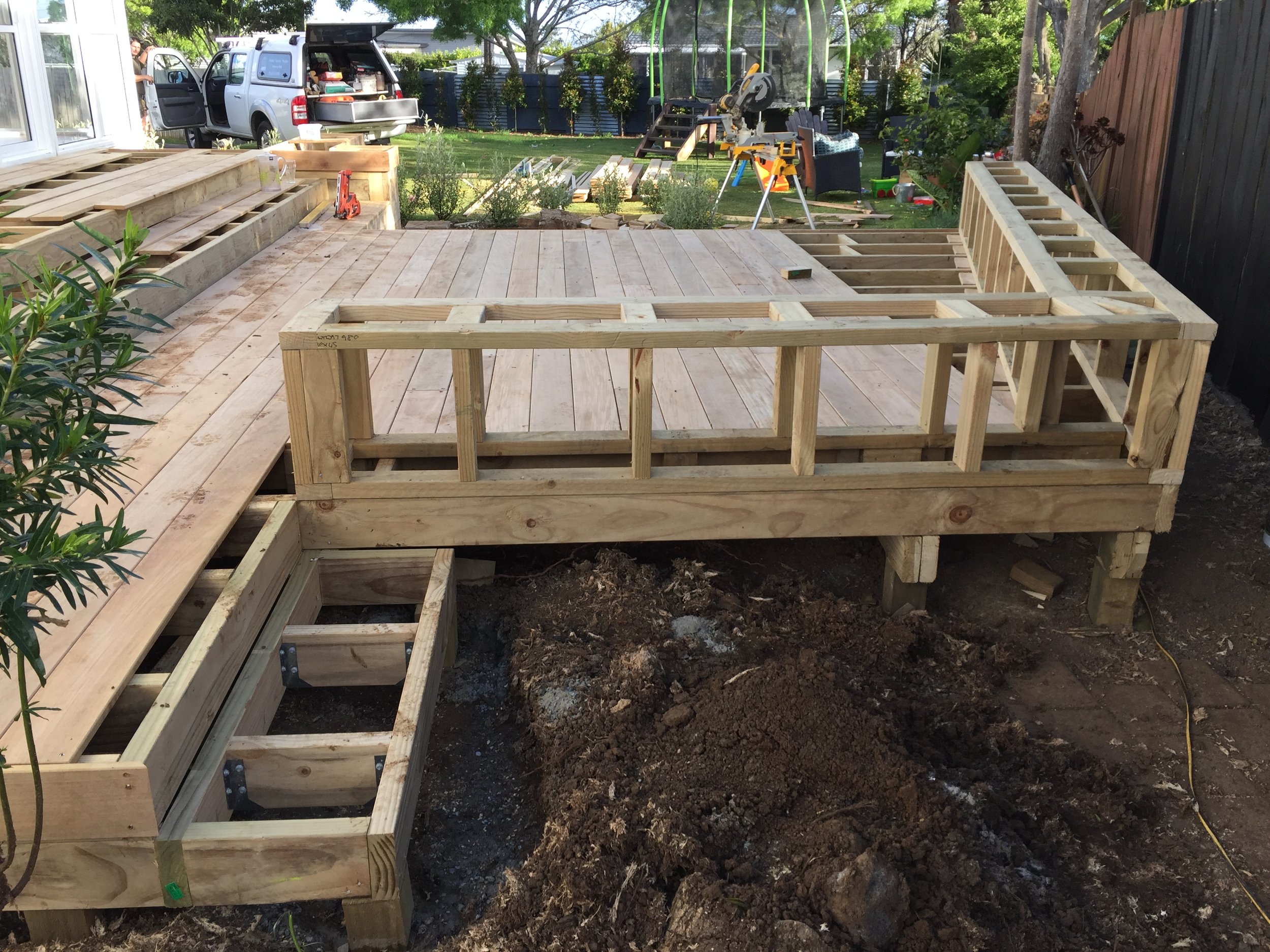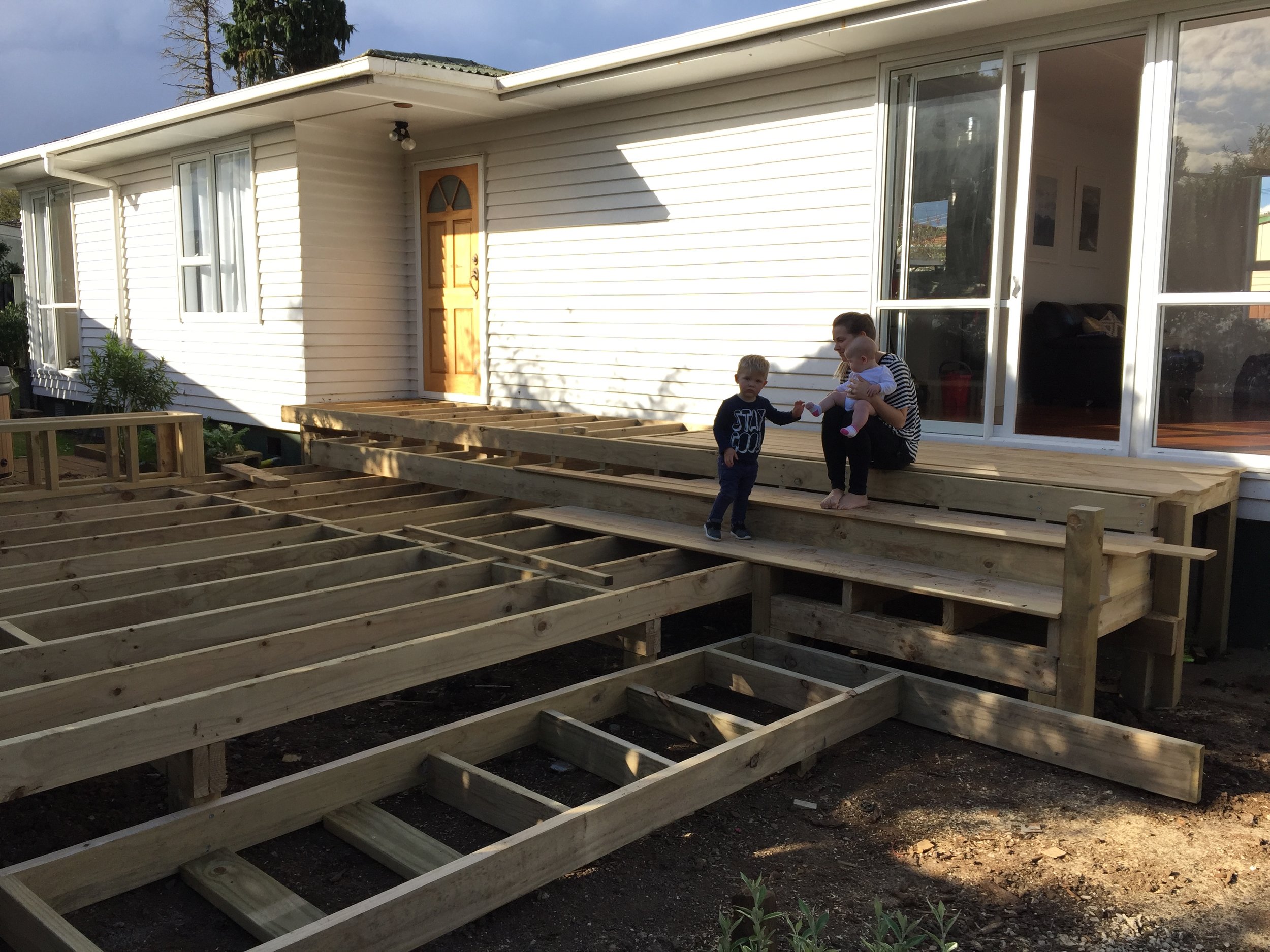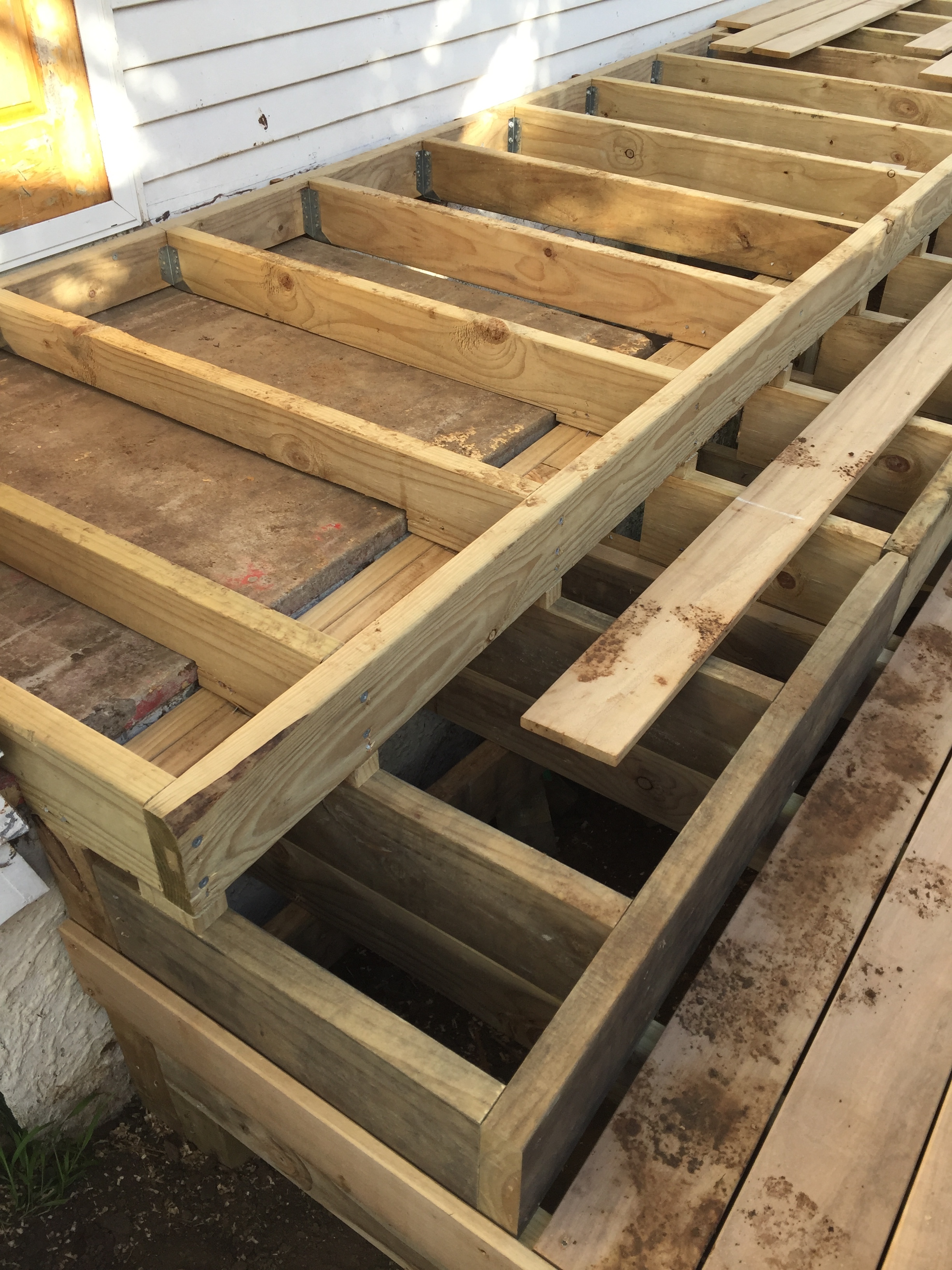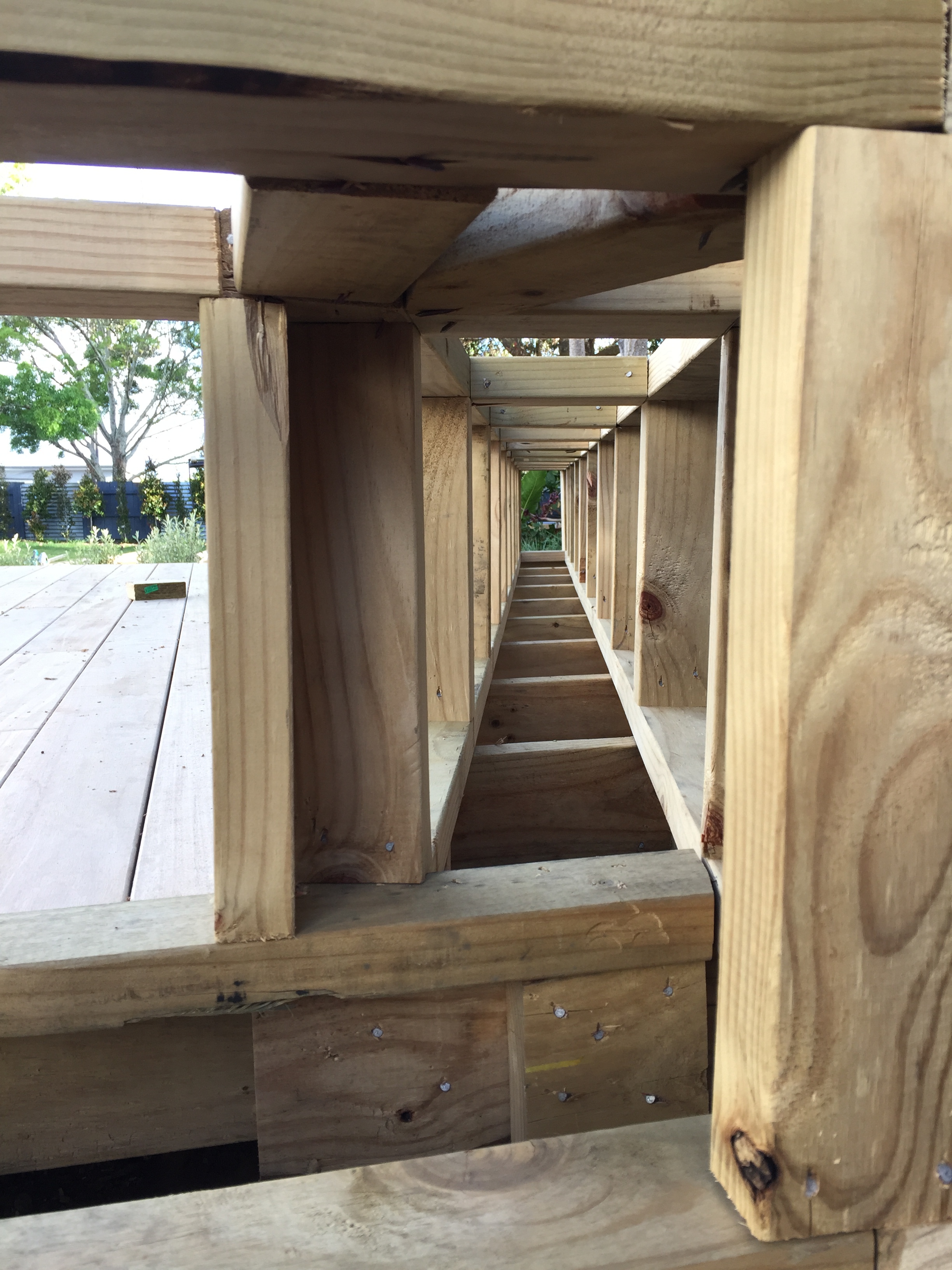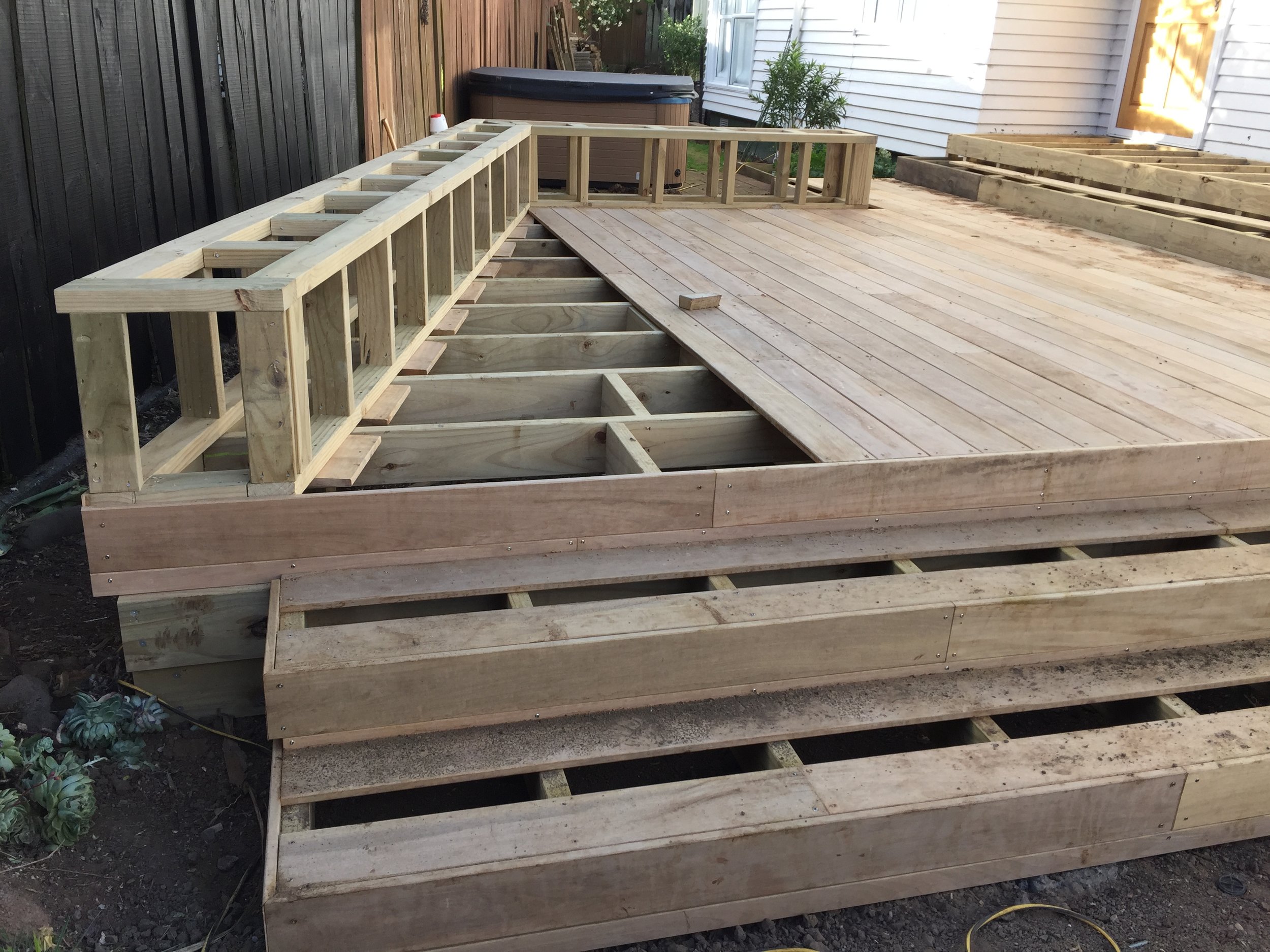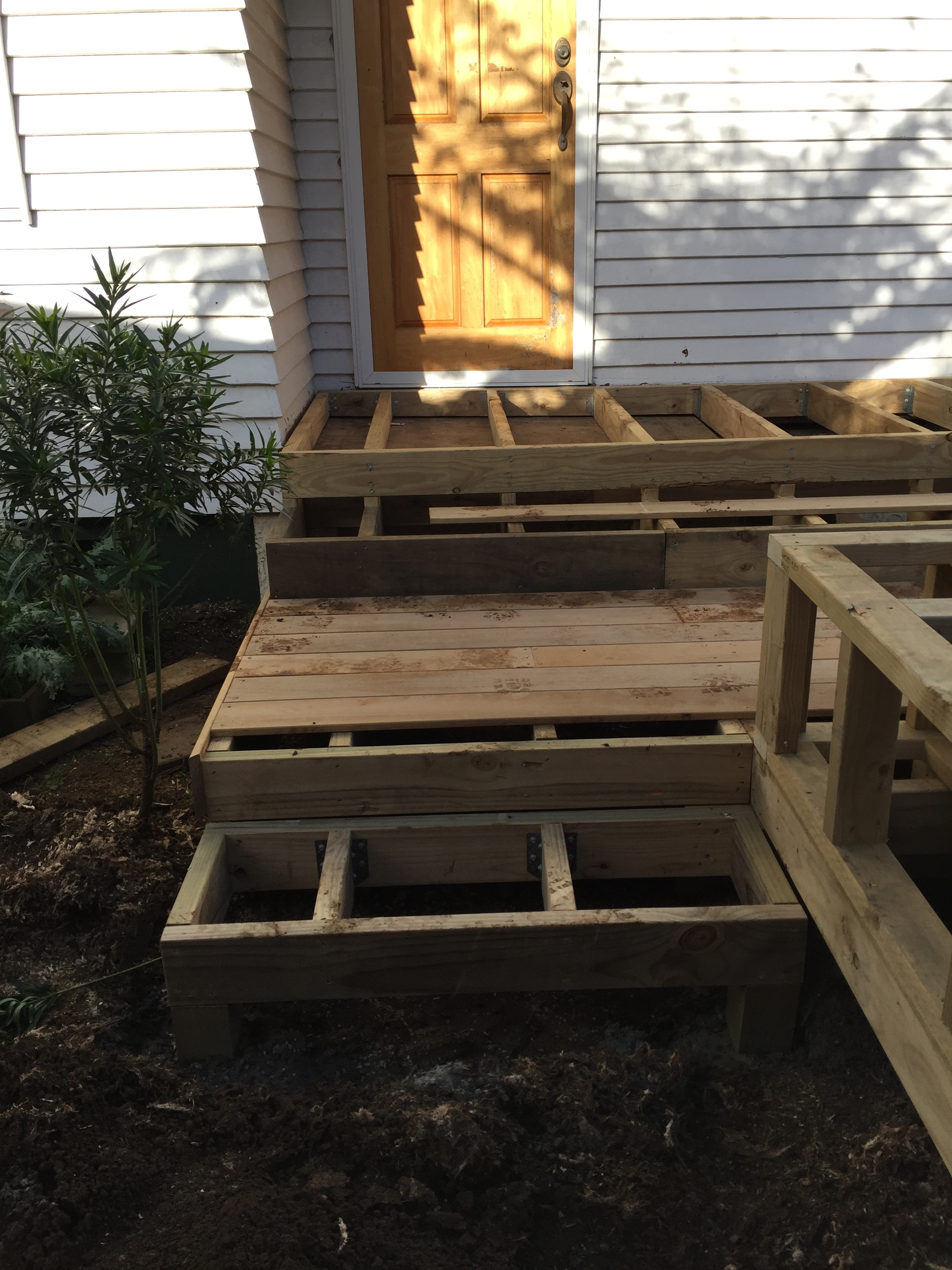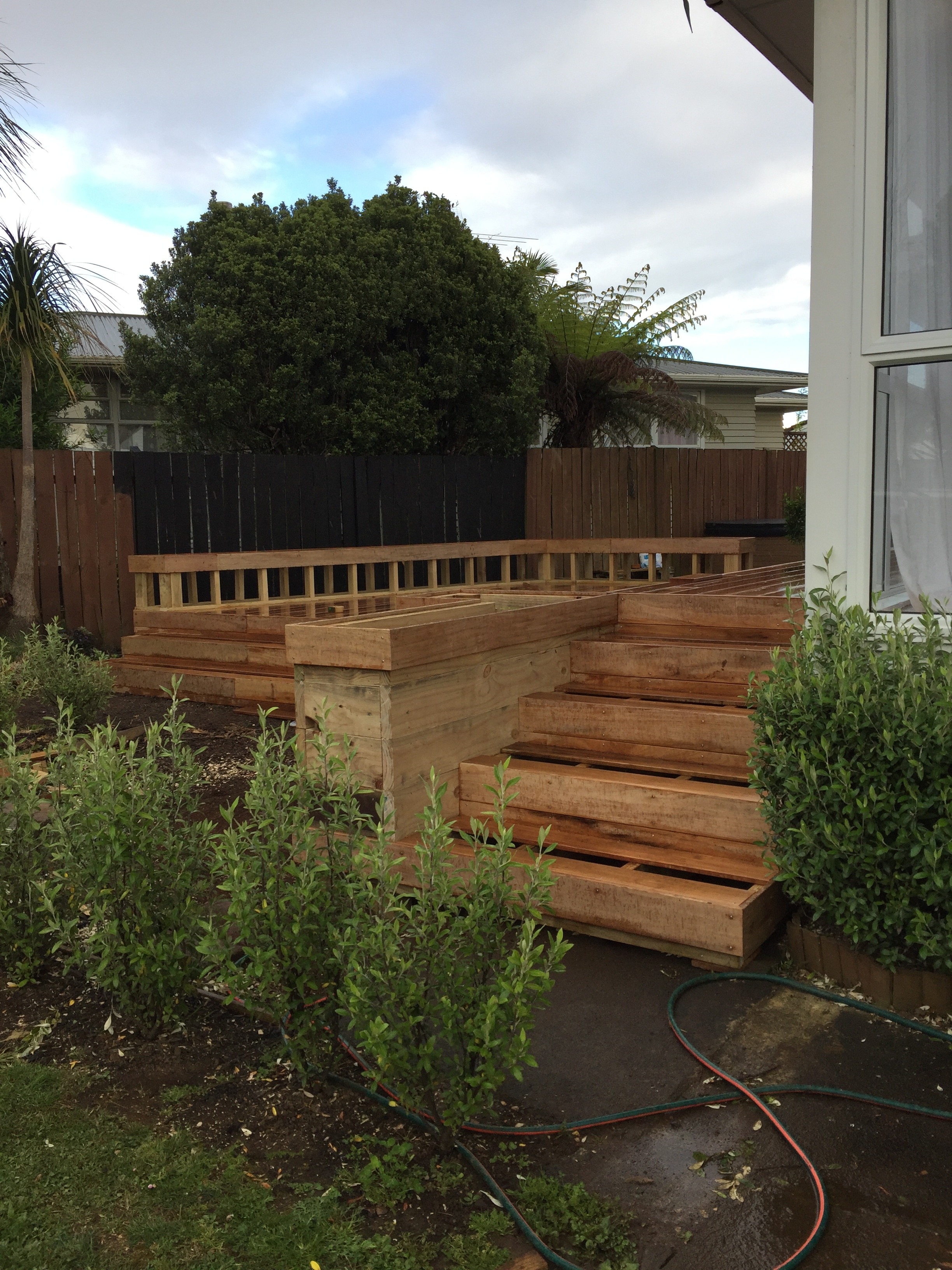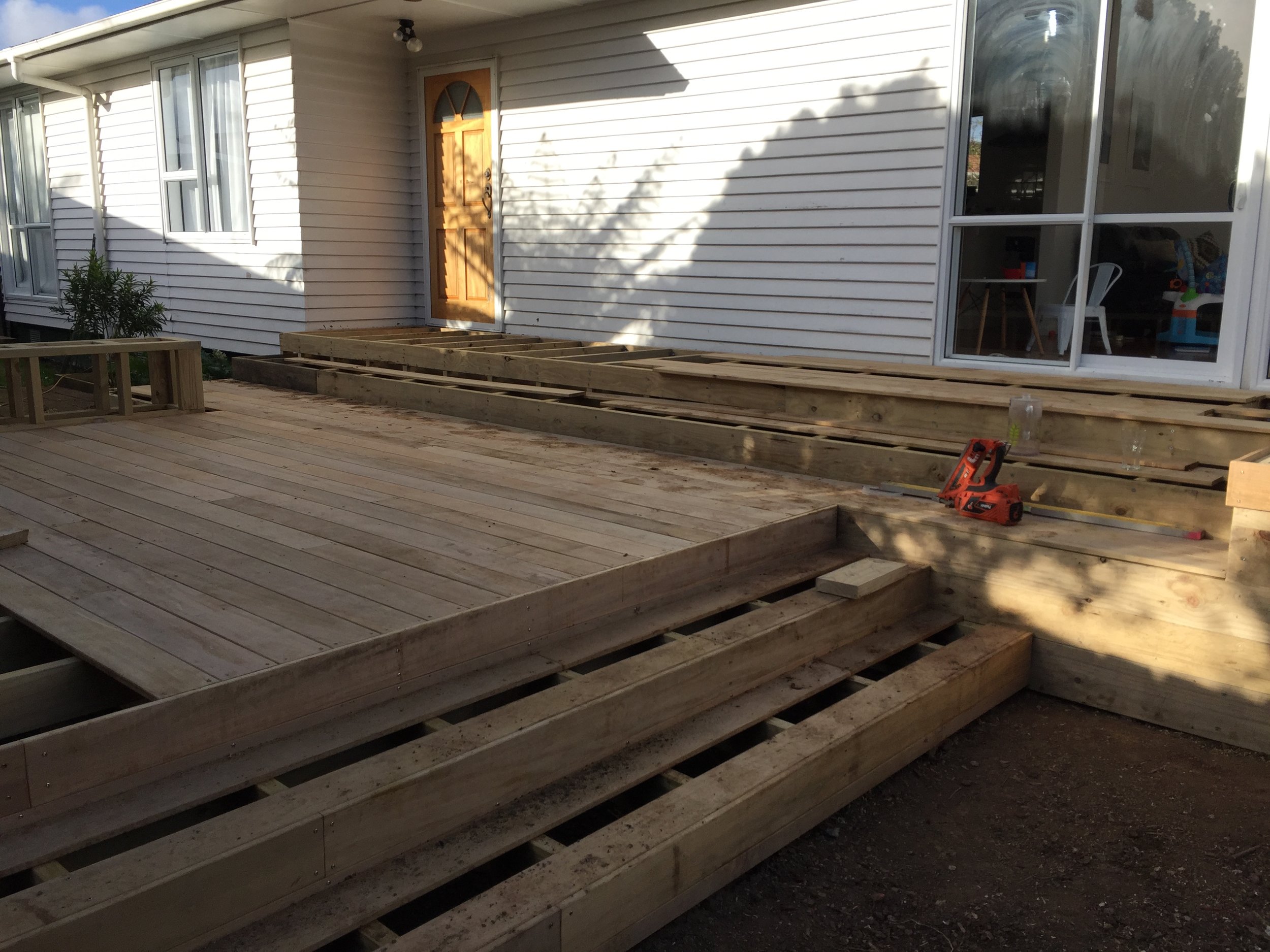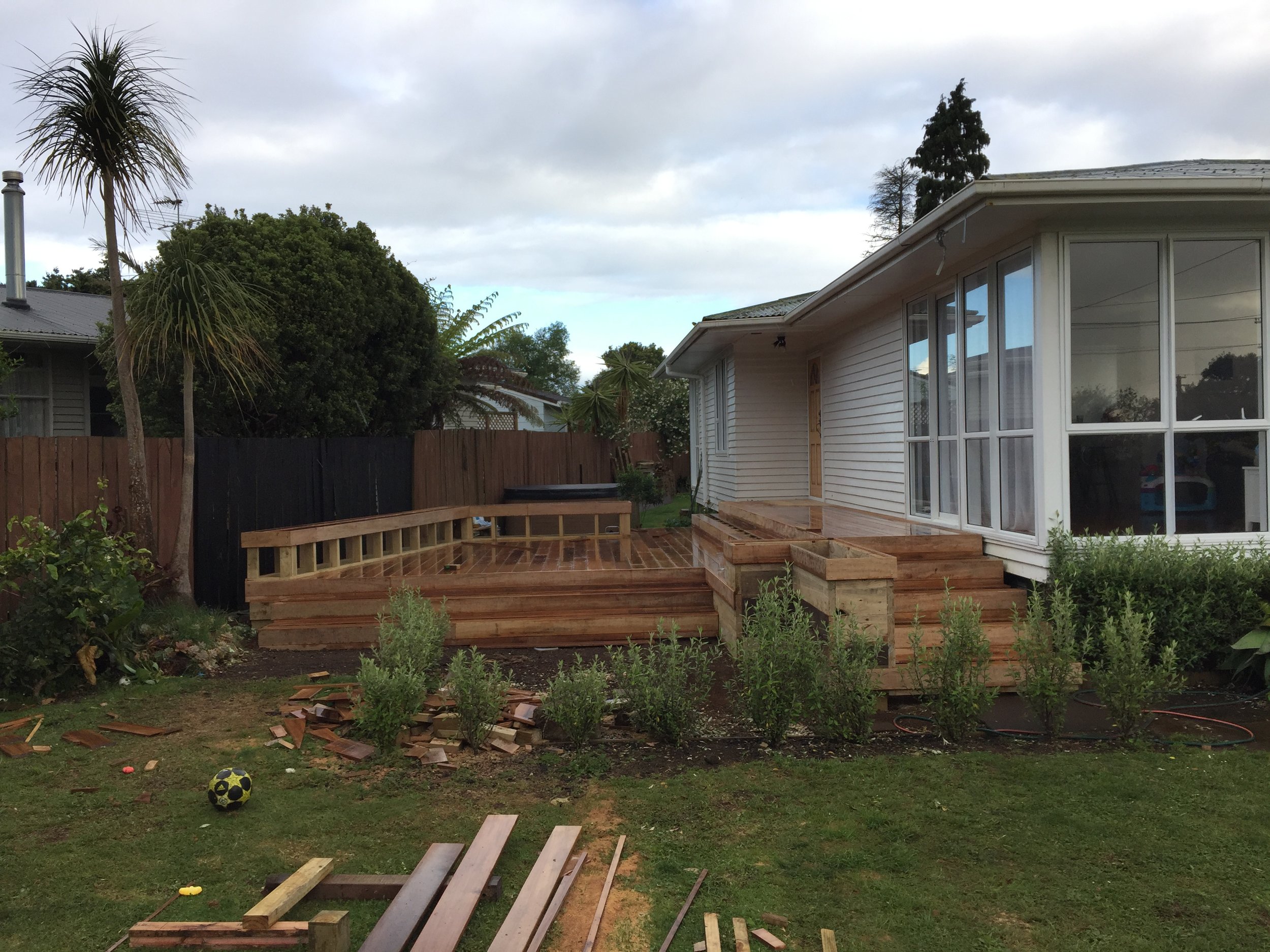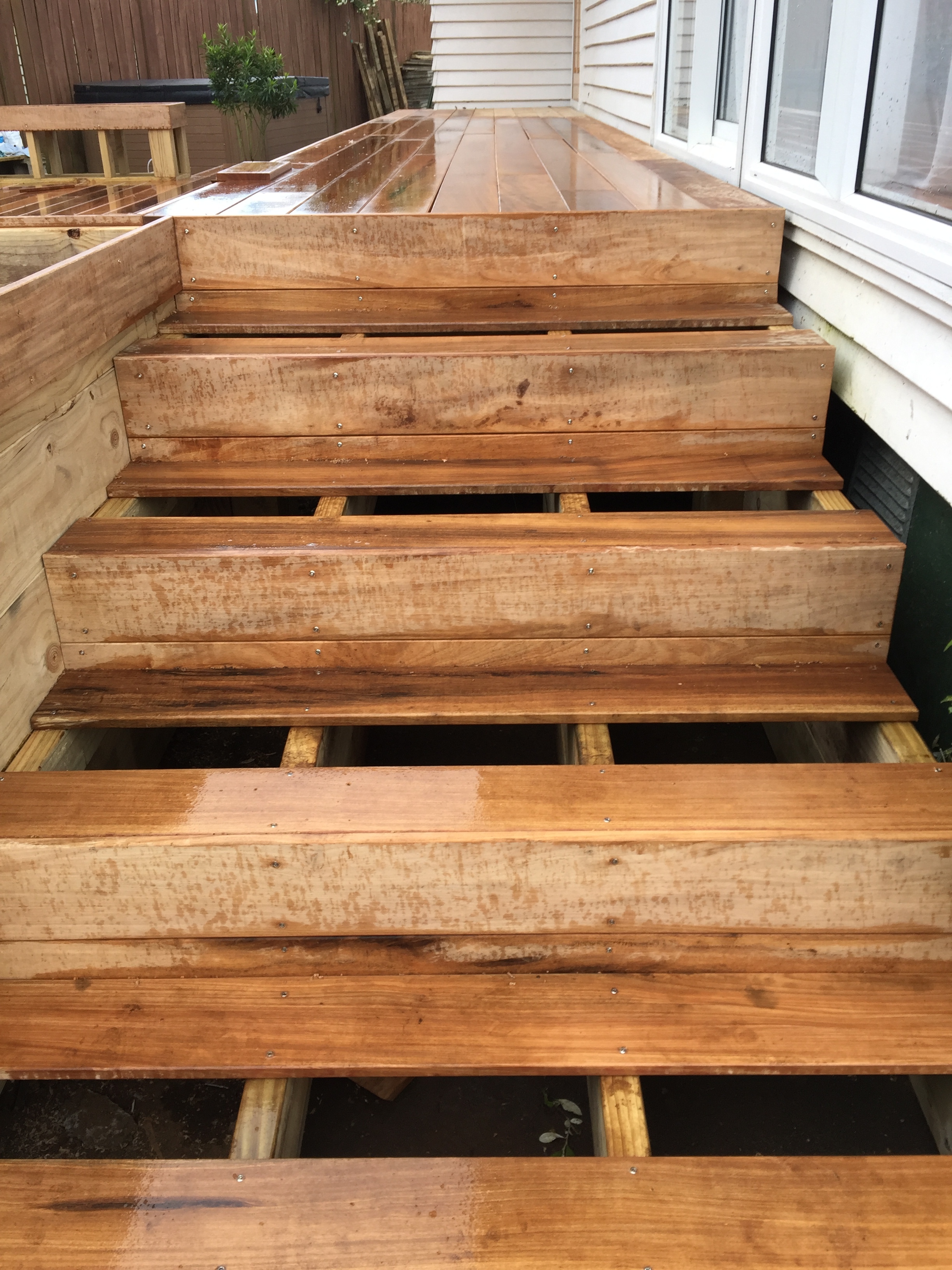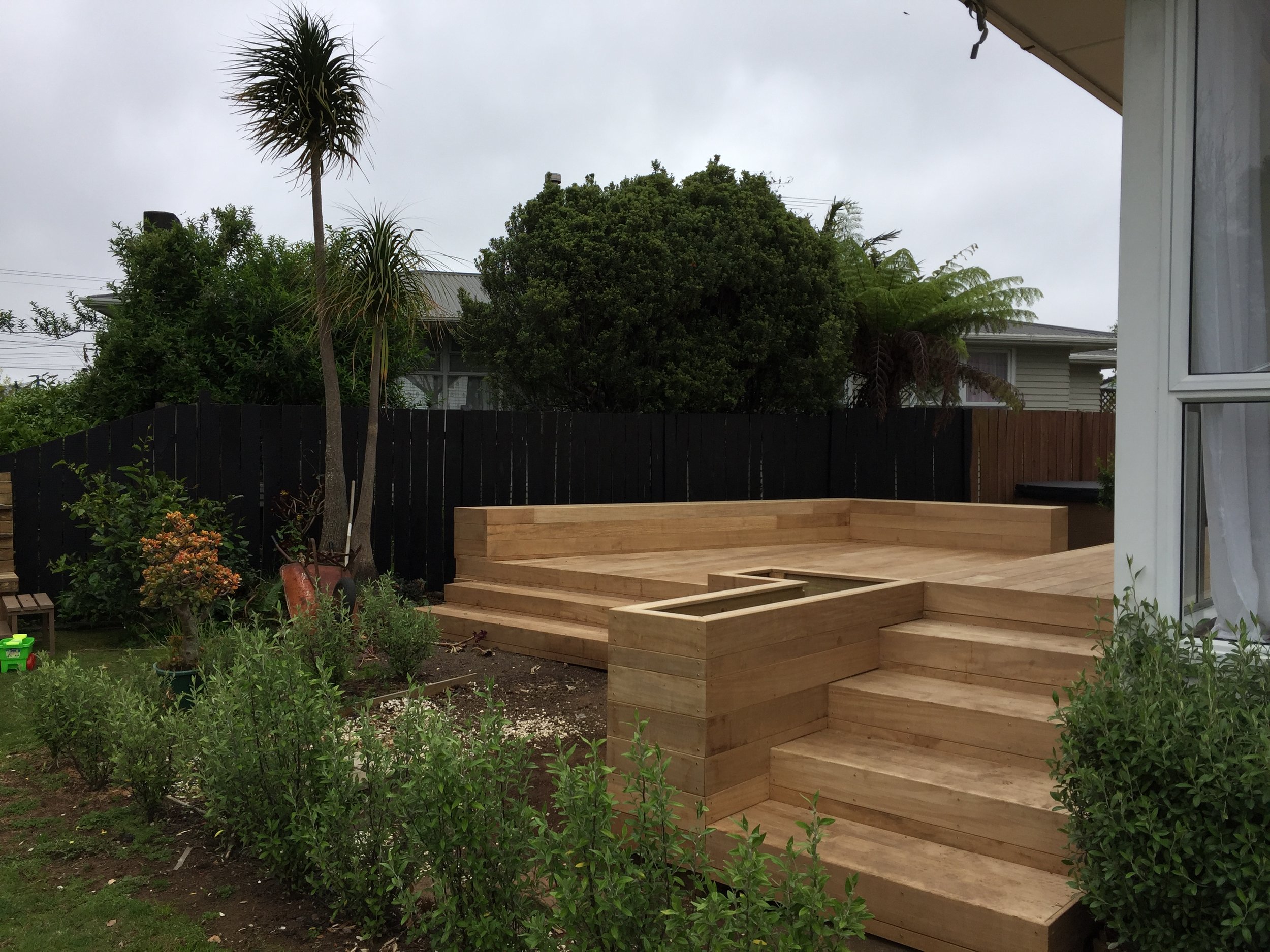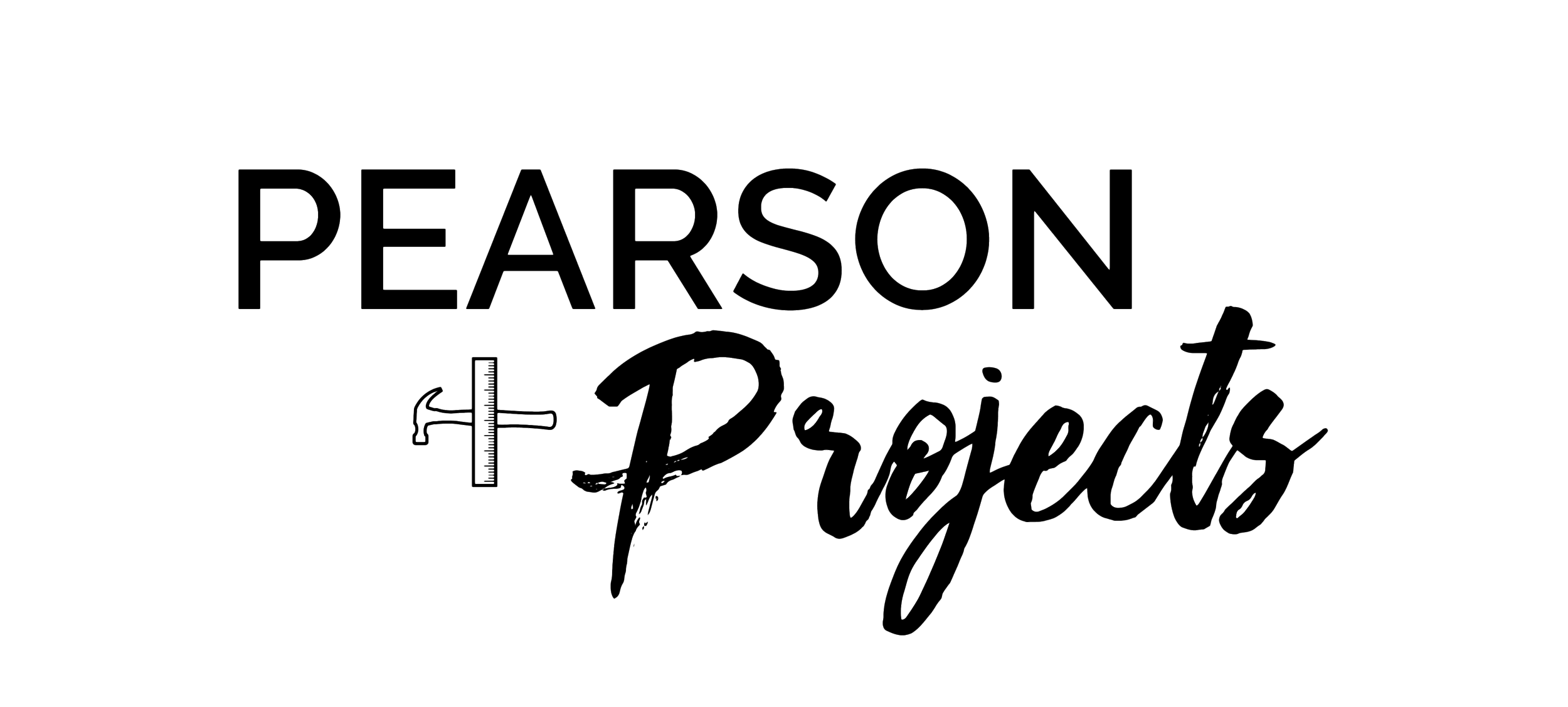Designing in the Great Outdoors
What makes a great outdoor space? Designing and renovating our exterior has made us think long and hard about this. Is it indoor-outdoor flow? Is it privacy so you can sit around a brazier at night, or a big deck that you can impress your friends with and have those summer parties on. The more I think about this the less I believe that there is a single right answer. Rather it depends on how you want to use it, what you place a priority on, how it works in relation to your house and property and what you see value in.
Making the decision to renovate our outdoor space made us think and question just that - how to design something that would be the best for our family, house and what we place importance on in an outdoor space. For us we decided that we would focus on the item that is the most critical to connecting our outdoor space and the area we wouldn't want to change quickly - our deck. For our property the deck would be the connection between all our spaces and the central area for outdoor living. A deck is likely to be the most expensive item in creating outdoor living area and the space you want to be happy with for years to come - so its the area we focused on with our design. Designed right and it would create both an attractive, liveable space and one we wouldn't have those 'if only we...' thoughts.
Living in our home for a year has helped us develop and refine ideas on our deck design – both from dreaming about it and frustration at times from the existing outdoor space. Design is more intentional when you have clear objectives - as seen in our blog about outdoor planning. Following creating our wish list of goals, there were which plenty of sessions with the measuring tape outside and sketching and challenging our ideas.
In addition to our design wish list we also had 2 other priorities we used in our decision making. Quality - the deck built right and last a long time. Value - value we would get from both in lifestyle improvements and by adding value to our property.
The key design decisions were focused around:
- Location of the deck and adjacent spaces, being the connection and flow to the indoors, lawn and rear courtyard.
- Size. The bigger your deck, the more cost involved. However while a smaller deck might be cheaper it might not be the best for your space and may leave to regrets if compromises your design.
- Levels and steps. Our house level is almost 900mm higher than the ground and needs 5 steps. Working out where best to add the steps and transitions – these can be difficult to deal with at times but also create opportunities to create spaces within outdoor areas - we saw this as an opportunity to create a more intimate feel with our deck seating and help with the privacy. Also how big to make the steps - steps add cost.
- Hard material selection. These are the costly items in your outdoors and the ones you don't want to replace once you have done it – identifying which areas we want to spend money on, where can we find alternatives.
- Soft Landscaping – plants. For us we want low maintenance planting, a nice looking hedge and a few feature planting areas.
- Safety for the kids, we talked through at the potential areas where children could fall off the deck and designed bench seating and a integrated planter box. We also wanted to break up the steps and levels to make the layout safer.
- The overall look of the outdoor space. Making sure the deck design complements the lines and design of it surroundings - in our case the fence and the exterior of the house.
With a concept in place we worked with a deck builder we knew to help turn our design into a finished product. They did a design-build service for us, making sure that the required deck structure was constructed as with standard practices. The big bonus for us with using them is the deck could be completed in 2 weeks (not 4 months if I did it myself) and I knew the quality would be great. An added benefit was we were also able to make a few tweaks to the design during the construction as the structure was laid out and we could see it progress. Here is where our planning and a clear design brief is crucial - as we did not have every detail planned we were able to work with our builders making sure our goals were clear and hear their suggestions from their experience on improvements and adjustments but without compromising our vision.
Here’s a few progress photos of turning our deck design being built:
